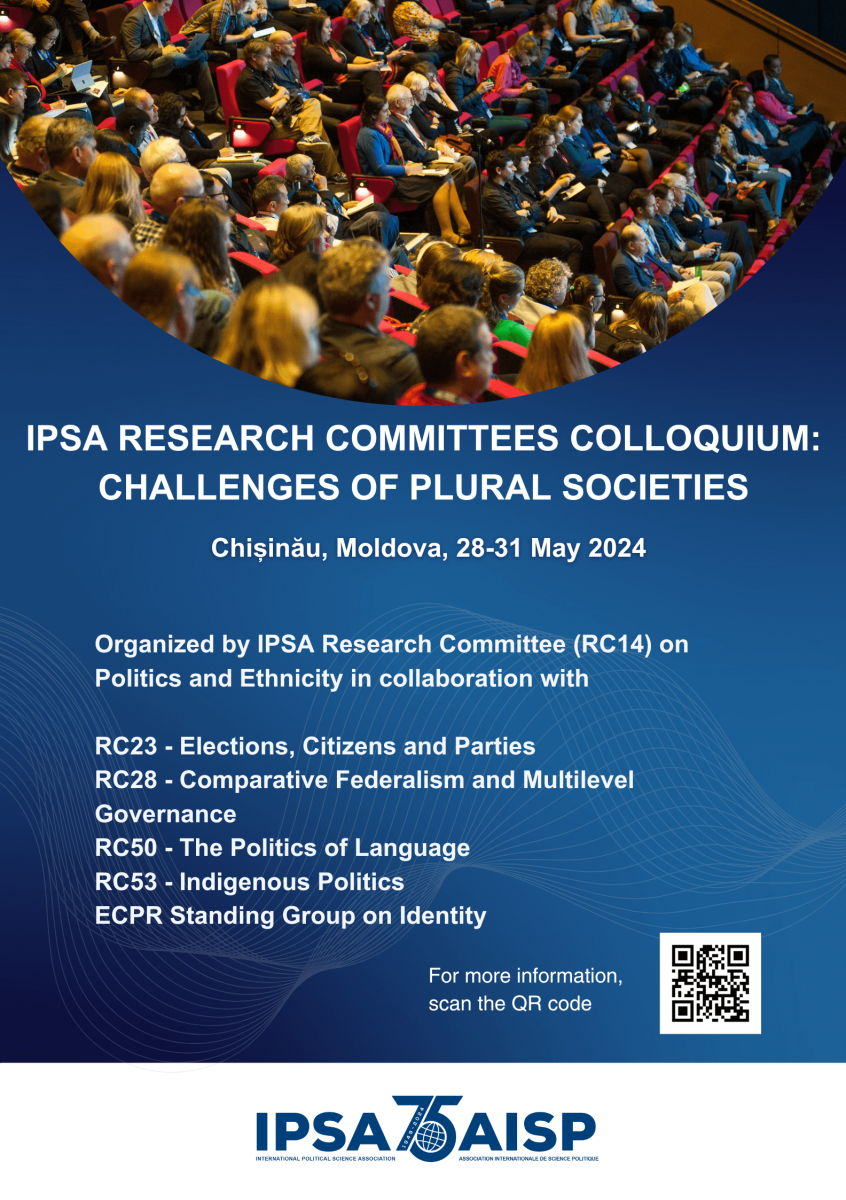

IPSA Research Committees Colloquium: Challenges of Plural Societies
Publication date: Tue, 21 May 2024
The IPSA Research Committee (RC14) on Politics and Ethnicity, in collaboration with RC23-Elections, Citizens and Parties, RC28-Comparative Federalism and Multilevel Governance, RC50-The Politics of Language, RC53-Indigenous Politics and the ECPR Standing Group on Identity, will present the latest edition of its annual colloquium on the theme Challenges of Plural Societies. The event is organized in partnership with the Faculty of International Relations, Political and Administrative Sciences, Moldova State University, Chișinău, Moldova on 28-31 May 2024. Prof. Zsuzsa Csergo (Queen’s University, Canada) will deliver a keynote address at the conference.
Building on the experience of past events in Nicosia (2017), Sarajevo (2019) and Belfast (2023), the colloquium brings together several IPSA research committees to examine in conversation with one another the challenges faced by ethnically plural societies in the context of challenging regional environments and increasing polarization associated with “culture wars” at the domestic and international levels.
The colloquium will be convened in Chișinău shortly after Moldova began negotiations about its EU accession, but also while hybrid threats affect the local and regional political dynamics, and there are heightened tensions in society as the presidential (October 2024) and parliamentary (2025) elections approach. Additionally, the political prospects of the currently isolated, autonomous region of Gagauzia remain unresolved, while the conflict in Ukraine and the EU accession process have the potential to impact the future settlement process of the protracted conflict in the Transnistrian region of Moldova.
The colloquium will include roundtables on challenges to stability and the quality of democracy in contemporary Moldova and on Moldova’s European integration, and a wide range of panels on topics including pluralist societies in a populist world; challenges to statehood in the Western Balkans; populism and polarisation in Europe; culture wars in Latin America; indigeneity and political participation; and Eastern Europe’s fragility during the war in Ukraine.
Thanks in part to generous funding from IPSA, participants from Moldova, Ukraine and other countries from the Global South benefit from reduced registration fees.
For full details, including the programme, please see the colloquium website.











